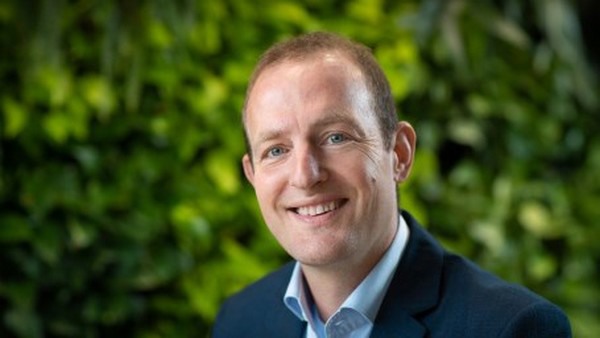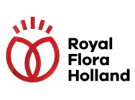"We presented our annual report to the Members' Council and the press last week with a certain measure of pride. While preparing the report, my thoughts automatically turned to the situation last year. Dramatic images of the mass destruction of millions of beautiful unsold flowers are indelibly etched in my memory," says David van Mechelen, CFO with Royal FloraHolland

I hope I never have to live through that again. It still hurts when I think of all those beautiful products, grown by our members with lots of love, that ended up on the compost heap. I'm always impressed by the resilience, flexibility, and entrepreneurial spirit shown by the floriculture sector. It's really remarkable that floriculture sales had just started when the coronavirus crisis broke out. Those lost peak months hurt nearly all growers and buyers in the wallet.
With trade brought to a standstill, the majority of Royal FloraHolland's revenue also dropped dramatically. I can still remember how my computer screen showed me a dizzying potential loss with little revenue but substantial overhead costs. When income is reduced there's nothing left to do but to take a more critical look at your own costs. There's an old saying: "Everything you pay attention to grows". For costs it's often the other way around. If you give them attention, they actually decrease. Something we, within our business, have demonstrated for a few consecutive years. Last year, 2020, on top of the cuts we already had planned for the budget, we saved an extra 8 million euros. Therefore, the negative coronavirus effect on our financial result was "only" 11 million euros and we booked a relatively manageable loss.
This means that, even after a difficult year with coronavirus, our balance sheet is in good order. This also applies to our cashflows. We were able to invest from our own cashflow last year, and we even reduced some of our debts. There was no issue of financing investments with member loans (certificates) or with a bank loan. Moreover, we even saw the balance sheet ratios improve slightly in 2020, and therefore decided - with the approval of the Supervisory Board and Members' Council - to pay off an annual membership certificates accrual early. Who would have thought that possible a year ago? Furthermore - and this usually receives little attention - a lot of our properties are listed at historic acquisition values. Sometimes they are even completely written off in accounting terms, even though the market value is a great deal higher. That means that we have a lot of financial elbow room to make transformations now and in the years to come. Nonetheless, there is also a financial necessity for such transformations. It might sound contradictory, but it isn't.
Because, to be honest, there is financial uncertainty in the long term. What can't be disputed is that we have been seeing declining auction clock sales for many years in a row, while direct sales have been rising. Our cooperative's earning model is for the most part based on auction clock sales, while we've developed very little service provision for direct sales. We're starting to feel the squeeze and we're not going to make it with cost savings alone. As already mentioned, we're starting from a solid financial position but have to make changes to keep our cooperative financially healthy in the long term. We are already actively engaged in making these changes as a business, as a cooperative and also more widely as a sector. We are doing a number of things in combination with others. First, developing services for direct trade so that we also contribute added value to these flows and generate income. Second, modernizing the auction clock. Finally, combining service provision for clock and direct flows along the axes of Ordering, Payment and Delivery. In this way, we are building a cooperative that through its services can contribute more added value to growers and their buyers in a financially responsible way. Moreover, in this way, we maintain the scale necessary to realize the main objective of our cooperative; optimal pricing at low cost. This may even turn out to be the solution for strengthening the auction clock.
Developing new service provisions takes time, particularly before larger volumes are processed. New earning models still have to prove themselves. In the meantime, we have to ensure that our housekeeping accounts are in good order. Therefore, we will strive for the break-even point or just above in the coming years. Yes, we will be making the required investments, but at the same time paying close attention to our expenses. This will allow us to remain financially fit with market-compliant rates and at the same time work towards a future-proof earning model so that our cooperative will survive and thrive.
We made a good start in the first quarter of 2021. We're ahead in our budget and anticipate, so long as nothing crazy happens, to stay in the black. I, therefore, have a double message. We will be focusing on costs, short-term results, and the feasibility of staying in the black in 2021 as long as our daily service provision functions properly. In addition, there is the continuing urgency of investment and realizing our strategy in order to put the financial performance of our cooperative on a surer footing for the long term.
For more information: Royal FloraHolland
Royal FloraHolland
www.royalfloraholland.com
